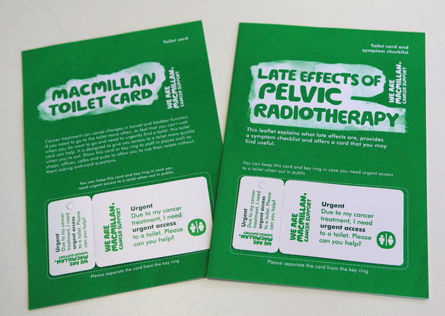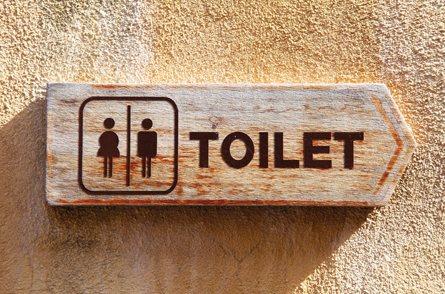OTC

The lowdown on adult incontinence
In OTC
Bookmark
Record learning outcomes
The one in six women who suffer from bladder weakness during the night is an untapped market
Adult incontinence affects around one in four people in the UK. Dawn Gay explores how pharmacy teams can support this often hard-to-reach section of the population
Bladder weakness is the largest sector of the UK’s intimate hygiene market and is currently the main source of value growth, according to market leader TENA. With an increasing market for purpose-made adult incontinence (AI) products like pads and pants, pharmacists can provide expert knowledge along with reassurance and product recommendations, while reacting to this growing category and driving revenue.
P&G expanded its Always Discreet AI range for women this summer. Additions to the range, which was launched two years previously, include Always Discreet Incontinence Light Liners for Sensitive Bladder, which offer light absorbency for women who suffer from low levels of AI.
Pharmacies can offer women who suffer from heavier incontinence the option of Always Discreet Incontinence Underwear Pants Super. The cotton-look, high-waist pants are available in medium and large sizes and have an absorbent triple layer liner to protect against wetness and odour.
P&G Femcare brand manager Lourdes Fuentes explains that the new products open doors for discussions between pharmacists and AI sufferers – especially as many women use generic feminine hygiene pads, which are designed for menstruation rather than AI.
Ms Fuentes says: “P&G continues to support pharmacists addressing the issue of adult incontinence by arming them with the tools to talk to women suffering from the condition. They are in a favourable position to start the conversation on AI with their customers. Thanks to the one-to-one consultancy they offer, they can discreetly find out about the specific nature of the condition. With the new Always Discreet Light Liners and Pants Super, we are growing our available range to offer the right solution for every woman’s individual needs.â€
Prospects are also good for pharmacists hoping to expand OTC sales in the category, says Ms Fuentes: “AI is the fastest growing category within health and beauty and we have already seen that Always Discreet has really struck a chord with women suffering from AI when we won the Product of the Year Award 2016.â€
P&G reports positive feedback from women using their products, with 92 per cent saying that they would buy the product again, and 97 per cent saying that they would recommend it to a friend. A third of women buying Always Discreet are completely new to the category, showing a potential for growth. “With this in mind, we encourage pharmacists to stock up on the full range of Always Discreet now and make the most of the opportunity.â€
Overnight protection
According to a 2014 TENA Lady survey of 2,000 UK women conducted by OnePoll, the one in six women who suffer from bladder weakness during the night is an untapped market. In fact, femcare night towels make up eight per cent of value sales, leaving a potential for specialised night-time AI products.
Donna Wilson, TENA’s training and brand manager, explains that getting a good night’s sleep can be hard for women experiencing bladder weakness. “This is especially pertinent for those who aren’t using the most appropriate protection for their needs,†she says. “For instance, using a product designed to be used during the day at night. For one in four women, this results in product leakage at night, meaning they are more likely to wake up. In fact,two in every 10 women get up during the night to change product, so it is vitally important they are using a product designed for their needs to help aid a worry-free night’s sleep.â€
As consumer confidence in bladder weakness products grows and the taboo diminishes, customers are buying into the idea of protective pants. TENA recommends that pharmacists stock a comprehensive range of unisex pants for heavier bladder weakness, displayed alongside pads for lighter and moderate AI.
“Pharmacy is a trusted environment, so customers feel more comfortable trading up to heavier products, especially if they can seek additional advice from a trained professional who can clearly explain the benefits of using a product that offers greater protection,†says Ms Wilson.
“To encourage trade-up and further growth in store, pharmacists should ensure that heavier products are highly visible and merchandised alongside the lighter options so that customers can weigh up the benefits of choosing a more absorbent product. Positioning the fixture in an area of the pharmacy that can be seen clearly will also help pharmacy staff identify customers who might require additional help choosing a product, providing an additional opportunity to educate and advise.â€
The male AI market
Pharmacists can also react to an emerging male AI market. TENA currently offers five male products – the ultra-thin TENA Men Protective Shield, cup-shaped TENA Men (levels one to three), and TENA Men Protective Underwear Level Four for extra absorbency.
Ms Wilson says that one in four men over the age of 40 experience urine leakage and this market now has the biggest potential for growth. “Despite this commonality, many men still assume that bladder weakness products are only available for women, so will often ignore the issue or improvise. Stocking a range of products that have been specifically manufactured for this demographic, in a variety of absorbencies, is the perfect way to introduce men to the category.â€
She goes on to suggest that pharmacists can help expand the male AI category in store: “If space allows, pharmacists could try dual-siting products so that men who are looking to purchase urine leakage products can look in the male fixture before the intimate hygiene fixture. This would help capture men, and also women purchasing products on behalf of their partners, driving potential sales in this emerging growth area.â€
Currently stocked at Boots and vitalitymedical.com, Attends is looking to expand its presence in independent pharmacies. Its extensive range of family AI products, ranging from children’s products to adult male and female pads, pants and accessories, has been on the market for about 30 years in 13 countries, with
a company headquarters based in West Yorkshire. Pharmacists can see the full range at attendslifestyles.co.uk.
 Toilet cards
Toilet cards
Pharmacists may be interested in taking part in a new ‘toilet card’ initiative launched by cancer charity Macmillan Cancer Support. The card can be presented to staff in shops and restaurants by those who have had cancer and need urgent access to a toilet, in order to avoid embarrassing conversations. Since the launch in March 2015, around 20,000 cards have been distributed and pharmacists can order them for free at be.macmillan.org.uk.
Around 150,000 people living with cancer are affected by urinary and bowel problems, including urgency and incontinence, explains Lesley Smith, consequences of treatment programme manager for Macmillan: “It is likely that you will at some point come across a customer who needs help with this debilitating side effect. It can affect people for months or years after diagnosis and is often the result of treatment.
“For example, prostate cancer patients can have problems with their bladder after treatment, including being caught short or leaking urine. Pelvic surgery can damage the muscles and nerves that control when you urinate, causing leaking, and radiotherapy can cause men and women to need to urinate more often. For some men and women, radiotherapy can also result in less control of their bowel, leaving them facing the worry of soiling themselves. Symptoms for these issues can begin within a few days of the patient’s first treatment, but can last several months or years.â€
It can be embarrassing and distressing for someone who has had cancer to explain to staff in shops or restaurants that they urgently need the toilet as a result of their treatment, says Ms Smith.
“The impact can be huge. We have heard of patients having accidents because they haven’t wanted to have those conversations, and others who have stopped going out as much because they have been so worried about needing the toilet and not being able to find one.
“Anyone, including pharmacists, can download the card and a leaflet to give to patients. While it doesn’t cure or treat incontinence, it can be a helpful tool for you to offer customers so they feel fully informed and so you can help them improve their quality of life. We hope it will empower those who use it to ask for help and get access to a toilet quickly and easily.â€

